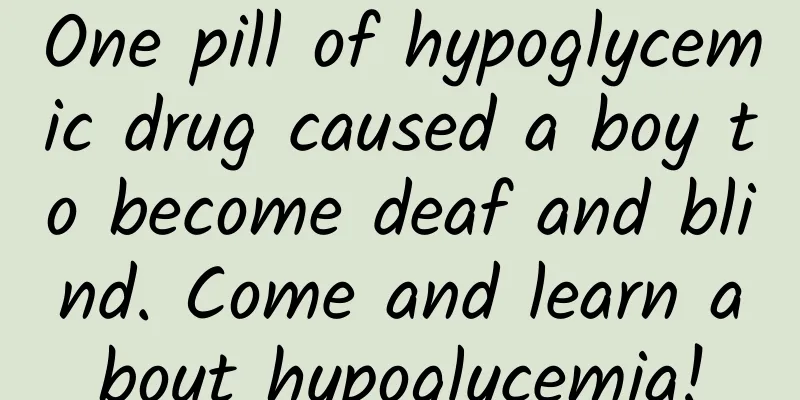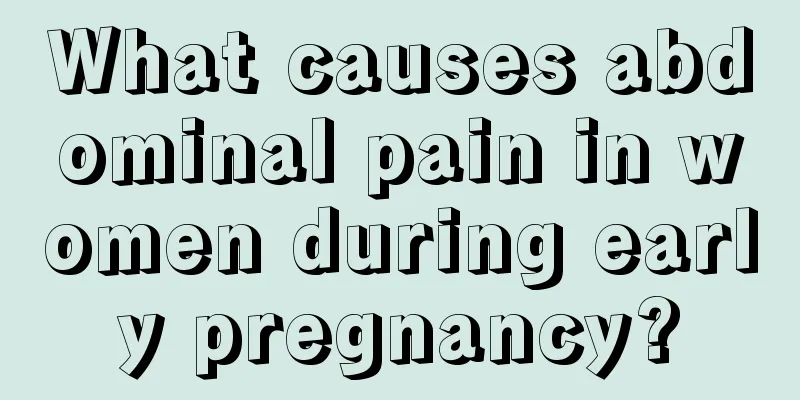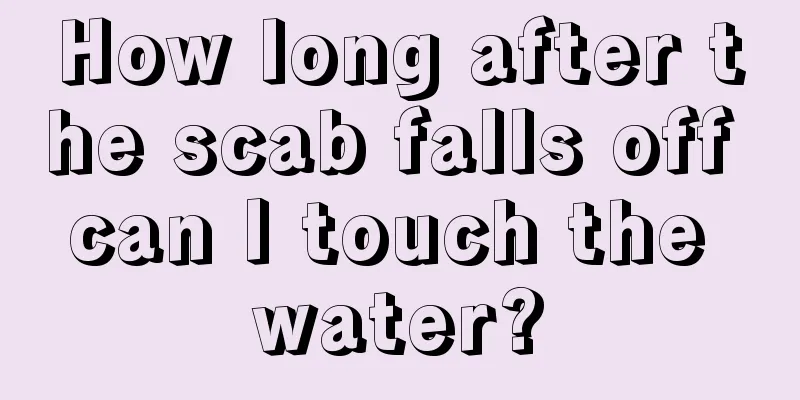One pill of hypoglycemic drug caused a boy to become deaf and blind. Come and learn about hypoglycemia!

|
Seeing this news, many people will be suspicious: How can a pill be so toxic? Isn't it just hypoglycemia? How can it cause blindness, deafness, and inability to stand? Yaowa wants to say that everyone really underestimates hypoglycemia. If the dangerous time of high blood sugar is measured in years, then the dangerous time of low blood sugar can be measured in seconds! As the saying goes, "high blood sugar costs money, low blood sugar costs life." If it is not treated promptly and effectively, low blood sugar can even threaten life in a short period of time. Symptoms of hypoglycemia include sweating, trembling, palpitations, hunger, anxiety, tension, weakness, pale complexion, etc. Glucose is the main energy source for brain tissues and organs. Since brain cells store limited sugar, it can only maintain brain cell activity for a few minutes. Therefore, once hypoglycemia occurs, symptoms of brain dysfunction may occur, mainly manifested as lack of concentration, dizziness, dullness, blurred vision, hallucinations, irritability, strange behavior, dance movements, tension spasms, coma, etc. If the condition develops seriously, the boy mentioned above may become deaf and blind. Hypoglycemia in non-diabetic patients is often caused by lifestyle habits. For example, dieting, not eating staple foods to lose weight, too strict diet control, insufficient glucose supply in the body; or excessive exercise, consuming far more energy than intake. Special populations, such as obese people, may release a large amount of insulin due to the over-sensitivity of pancreatic β cells to glucose stimulation, leading to sudden hypoglycemia 2-3 hours after a meal. Drug-induced hypoglycemia should not be ignored. The boy in the previous article became blind and deaf because of the use of glipizide. Therefore, friends who use drugs to control blood sugar must be careful! In general, drugs that cause hypoglycemia are also divided into high-risk and low-risk: 1 High-risk category: hypoglycemic drugs that can cause hypoglycemia when used alone, such as insulin (human insulin, insulin analogs), insulin secretagogue sulfonylurea hypoglycemic drugs (glimepiride, glipizide), insulin secretagogue glitinide hypoglycemic drugs (repaglinide, nateglinide). 2 Low-risk category: hypoglycemic drugs that do not cause hypoglycemia when used alone, but can cause hypoglycemia when used in combination with other hypoglycemic drugs. Examples include metformin, α-glucosidase inhibitors (acarbose), thiazolidinedione hypoglycemic drugs (pioglitazone), dipeptidyl peptidase-4 inhibitors (vildagliptin), glucagon-like peptide-1 (GLP-1) agonists (exenatide), sodium-glucose co-transporter-2 (dapagliflozin), etc. In addition, there are some non-hypoglycemic drugs that either have a certain hypoglycemic effect themselves, or when used in combination, can enhance the effect of hypoglycemic drugs, thereby causing hypoglycemia. |
<<: Medicine Baby Quiz | Can breastfeeding mothers not use antibiotics?
Recommend
What causes abdominal pain due to less menstruation?
Menstruation is an important sign of sexual matur...
What is the fetal movement at 26 weeks of pregnancy?
After seventeen or eighteen weeks of pregnancy, p...
Is it better for a woman to have a soft or hard belly?
Clinically, it has been found that the abdomens o...
Can pregnant women eat spring sprouts fried eggs?
Spring is the time when spring comes to the earth...
How harmful is the first abortion?
Some couples do not take effective protective mea...
When do walnuts mature? How and when to store walnuts
Walnuts are rich in nutrients, and their outer sh...
Pregnancy second bar is not obvious
If the second line on the pregnancy test paper is...
What are the functions of the Golden Posture Warming Patch?
Many female friends have poor physical constituti...
After climbing the mountain, I had a high fever and a rash all over my body! We have treated many cases recently, so be careful of it when you go out!
Recently, the First Affiliated Hospital of Zhejia...
Eye pain was mistakenly thought to be caused by high blood pressure, but it turned out to be acute glaucoma induced by cold weather
A few days ago, 60-year-old Ms. Gao suddenly felt...
What are the dangers of hymen repair surgery?
Some women need to undergo hymen repair surgery d...
How to use olive oil for pregnant women
When pregnant, women also pay more attention to t...
Mastering the tips when exercising can easily lower your blood pressure. Learn these 5 techniques quickly!
High blood pressure is like a slow knife, lurking...
Precautions before medical abortion
Today's medical technology is very advanced. ...
A woman often plays with her mobile phone, causing her fingers to get "stuck" and unable to move. Be careful of tenosynovitis!
China Science and Technology News Network, Decemb...









